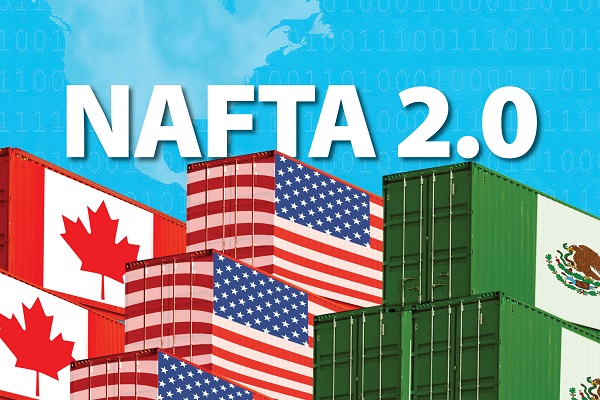

Trade talks between the U.S., Canada and Mexico should be reopened to improve the enforcement of labor standards not included in the current NAFTA 2.0 text, IAM Chief of Staff and Director of Trade and Globalization Owen Herrnstadt told Congress.
“For over 25 years, NAFTA has wreaked havoc on hundreds of thousands of U.S. and Canadian workers whose jobs have been outsourced to Mexico,” said Herrnstadt. “Unfortunately, by refusing to adopt our many recommendations the current text continues to fail workers.”
Herrnstadt, speaking to a House Ways and Means subcommittee on trade, rebuffed claims that NAFTA 2.0 sets the highest labor standards of any free trade agreement.
Read Herrnstadt’s complete testimony.
“Given the weak labor standards that currently exist in free trade agreements, that claim doesn’t say much,” said Herrnstadt, noting that under past free trade agreements, like the U.S.-Colombia agreement, more than 680 social leaders and human rights defenders have been murdered since 2016, including over 170 trade unionists.
Herrnstadt outlined three specific recommendations regarding labor enforcement in NAFTA 2.0:
Watch Herrnstadt’s complete testimony.
The IAM has been engaged in NAFTA renegotiations since Day 1. Unfortunately, the deal does not go far enough to help working people in the U.S., Canada or Mexico.
“When it comes to directly curtailing outsourcing of U.S. and Canadian jobs to Mexico where workers do not enjoy fundamental human rights, little or nothing has been proposed with respect to manufacturing,” said IAM International President Bob Martinez. “Outsourcing work in manufacturing industries such as aerospace, appliances, electronics, machinery, food processing, textile and apparels, and service industries, have apparently been ignored.”